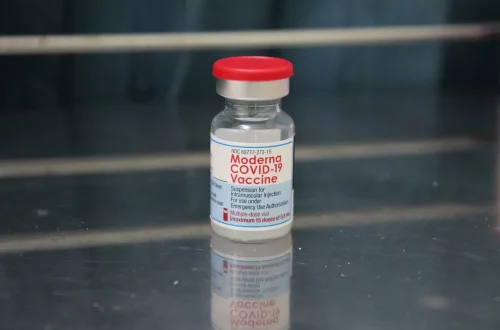
Can Blood Tests Effectively Detect STDs and What to Know
In today’s world, the conversation around sexual health has become more open and vital. With the rise of awareness about sexually transmitted diseases (STDs), many individuals are prioritizing regular health check-ups, including blood tests. Blood tests can serve as an important tool in detecting STDs, which can often go unnoticed due to their asymptomatic nature. The significance of these tests cannot be understated, as early detection and treatment can lead to better health outcomes and minimize the risk of transmission to others.
Understanding the methods of detection, the implications of various results, and the importance of regular testing is essential. Many people may feel apprehensive about the testing process or the potential outcomes, which can lead to delays in seeking necessary medical attention. Education on this topic can empower individuals, helping them to make informed decisions about their sexual health. In this context, it becomes crucial to delve deeper into the effectiveness of blood tests in detecting STDs and to clarify what individuals should know about the process, the types of tests available, and the importance of seeking medical advice when necessary.
Understanding Different Types of STD Tests
When it comes to diagnosing sexually transmitted diseases, there are different methods available, including blood tests, urine tests, and swabs. Blood tests are particularly useful for detecting certain STDs that may not be easily identifiable through other means. For instance, infections such as HIV, syphilis, and hepatitis can be effectively diagnosed through blood samples.
Blood tests work by identifying antibodies that the body produces in response to an infection. For example, when a person is infected with HIV, their immune system starts producing specific antibodies to combat the virus. A blood test can detect these antibodies, leading to an accurate diagnosis. It’s important to note that the timing of the test can significantly impact the results. In some cases, individuals may need to wait several weeks after potential exposure for the antibodies to develop sufficiently for detection.
In contrast, other STDs, such as gonorrhea and chlamydia, are commonly diagnosed through urine tests or swabs from the genital area. While blood tests are crucial for certain infections, a comprehensive approach to testing will often include a combination of methods to ensure a thorough evaluation of one’s sexual health.
Understanding the specific tests available and their purpose can help individuals make informed decisions about their health. It is essential to consult with healthcare providers to determine which tests are appropriate based on personal risk factors and sexual history. Regular screening, especially for those with multiple partners or high-risk behaviors, is a responsible choice that can lead to early detection and treatment.
The Importance of Regular Testing
Regular testing for STDs is a fundamental aspect of maintaining sexual health, especially for sexually active individuals. Many STDs can be asymptomatic, meaning that individuals may be unaware of their infection status, which can lead to further transmission. Therefore, routine testing plays a crucial role in preventing the spread of these infections.
For individuals who are at higher risk—such as those with multiple sexual partners or those who do not consistently use protection—healthcare professionals often recommend more frequent testing. This proactive approach helps in catching infections early when they are most treatable. It also fosters a culture of transparency and responsibility in sexual relationships, as knowing one’s STD status can encourage conversations about protection and safe practices.
Moreover, regular testing can alleviate anxiety regarding potential infections. Many people may feel apprehensive or fearful about seeking testing due to stigma or misunderstanding. By normalizing the conversation around regular health check-ups, individuals can feel more empowered to take charge of their sexual health.
It is also worth noting that testing protocols may vary based on age, gender, and sexual orientation. For example, women may be advised to undergo certain tests more frequently due to their anatomy and the potential complications of untreated STDs, such as pelvic inflammatory disease. Therefore, tailored testing recommendations are crucial in ensuring that all individuals receive the appropriate care based on their unique circumstances.
Interpreting Test Results: What Do They Mean?
Receiving the results of an STD test can be a moment of anxiety for many individuals. Understanding what the results mean is crucial in navigating the next steps. Positive results indicate the presence of an infection, while negative results suggest that no infection was detected at the time of testing. However, it is essential to consider the timing of the test and the type of STD tested, as some infections may not be detectable immediately after exposure.
For instance, a negative result for HIV may not be conclusive if the test was taken too soon after potential exposure. In such cases, healthcare providers may recommend repeat testing after a specified period to confirm the results. This is known as the “window period,” which varies depending on the STD in question.
In the case of a positive result, it is vital to seek further medical advice. Many STDs are treatable or manageable with appropriate medical care. Healthcare providers can offer guidance on treatment options, potential health implications, and ways to prevent transmission to partners. Open communication with healthcare professionals can lead to a comprehensive understanding of the infection and its management.
Additionally, it is important to inform sexual partners if one receives a positive diagnosis. This can be a challenging conversation, but it is essential for the health and safety of all parties involved. Healthcare providers can assist in navigating this process and provide resources for both treatment and emotional support.
Overcoming Stigma and Promoting Awareness
Despite advancements in sexual health education, stigma surrounding STDs remains a significant barrier to testing and treatment. Many individuals may hesitate to seek testing due to fear of judgment or discrimination. Challenging this stigma is crucial for promoting awareness and encouraging individuals to prioritize their health.
Education plays a pivotal role in overcoming stigma. Providing accurate information about STDs, their transmission, and the importance of regular testing can help individuals feel more comfortable discussing these topics. Public health campaigns can also contribute to normalizing conversations about sexual health, emphasizing that STDs are common and that seeking help is a responsible choice.
Support groups and community resources can offer a safe space for individuals to share their experiences and seek guidance. Connecting with others who have faced similar challenges can reduce feelings of isolation and anxiety. By fostering an environment of understanding and support, we can encourage more individuals to take charge of their sexual health without fear of stigma.
Moreover, healthcare providers can play a crucial role in promoting awareness. By creating non-judgmental environments and utilizing inclusive language, they can make it easier for individuals to discuss their sexual health concerns openly. Training medical professionals to address stigma and provide compassionate care can lead to better health outcomes and encourage more people to seek necessary testing.
In conclusion, awareness and education around STDs and their detection methods can significantly impact public health. Regular testing, understanding test results, and promoting open conversations can help individuals take proactive steps toward maintaining their sexual health.
**Disclaimer:** This article is for informational purposes only and does not constitute medical advice. Always consult a healthcare professional for any health-related concerns or questions.




